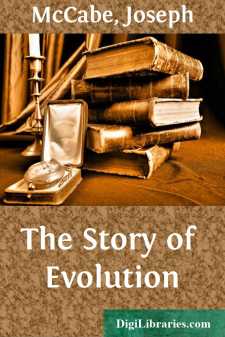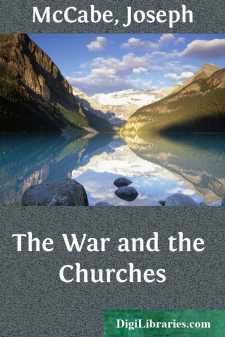Categories
- Antiques & Collectibles 13
- Architecture 36
- Art 48
- Bibles 22
- Biography & Autobiography 813
- Body, Mind & Spirit 142
- Business & Economics 28
- Children's Books 17
- Children's Fiction 14
- Computers 4
- Cooking 94
- Crafts & Hobbies 4
- Drama 346
- Education 46
- Family & Relationships 57
- Fiction 11829
- Games 19
- Gardening 17
- Health & Fitness 34
- History 1377
- House & Home 1
- Humor 147
- Juvenile Fiction 1873
- Juvenile Nonfiction 202
- Language Arts & Disciplines 88
- Law 16
- Literary Collections 686
- Literary Criticism 179
- Mathematics 13
- Medical 41
- Music 40
- Nature 179
- Non-Classifiable 1768
- Performing Arts 7
- Periodicals 1453
- Philosophy 64
- Photography 2
- Poetry 896
- Political Science 203
- Psychology 42
- Reference 154
- Religion 513
- Science 126
- Self-Help 84
- Social Science 81
- Sports & Recreation 34
- Study Aids 3
- Technology & Engineering 59
- Transportation 23
- Travel 463
- True Crime 29
Joseph McCabe
Joseph McCabe (1867–1955) was a British writer, philosopher, and former Catholic priest who became a prominent advocate of atheism and freethought. After leaving the priesthood in 1896, he wrote extensively on religion, science, and philosophy, producing over 200 books and pamphlets. Some of his notable works include "The Myth of the Resurrection" and "The Lies and Fallacies of the Encyclopedia Britannica." McCabe was known for his rationalist perspective and was a vocal critic of organized religion, especially the Catholic Church.
Author's Books:
Sort by:
by:
Joseph McCabe
CHAPTER I. THE DISCOVERY OF THE UNIVERSE The beginning of the victorious career of modern science was very largely due to the making of two stimulating discoveries at the close of the Middle Ages. One was the discovery of the earth: the other the discovery of the universe. Men were confined, like molluscs in their shells, by a belief that they occupied the centre of a comparatively small...
more...
by:
Joseph McCabe
CHAPTER I THE RESPONSIBILITY OF THE CHURCHES The first question which the unprejudiced inquirer will seek to answer is: How far were the Churches able to prevent, yet remiss in using their influence to prevent, the present war? There is, unhappily, in these matters no such thing as an entirely unprejudiced inquirer. Our preconceived ideas act like magnets on the material of evidence which is submitted...
more...



